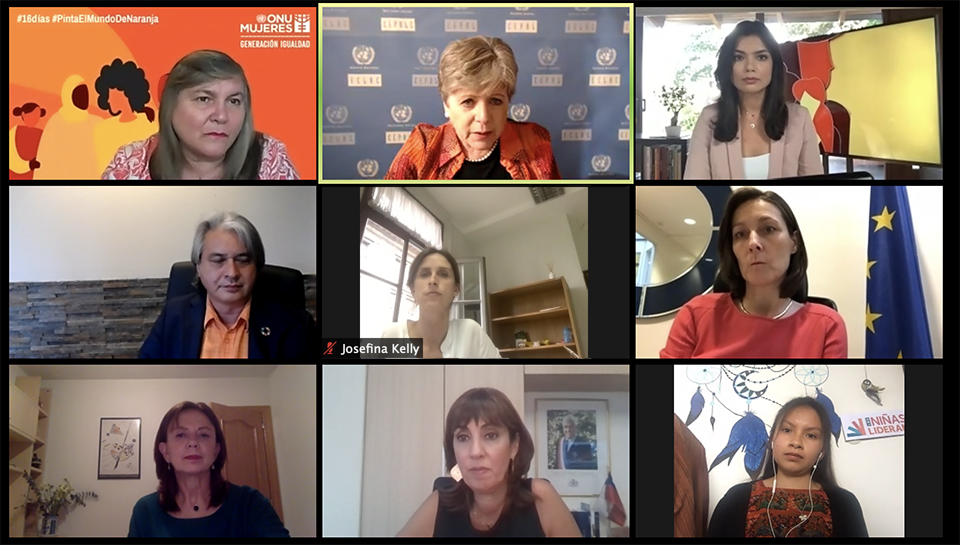UN calls for "zero tolerance" policies on violence against women and increased funding for women's organizations
Date:

In the framework of the International Day for the Elimination of Violence against Women and Girls, the United Nations, represented by Maria-Noel Vaeza, regional director of UN Women for the Americas and the Caribbean, called upon countries to ensure essential services for victims-survivors of violence, increase funding to women's organizations, put in place action plans to prevent violence and to disseminate information on services.
The call occurred at the high-level political event Gender-based Violence against Women and Girls: The Shadow Pandemic, which also highlighted the current state of violence against women and girls in the context of COVID-19, the measures that countries in the region have put in place, good practices and lessons learned, as well as the challenges that persist.
"There has been a lot of progress, but much still remains to be done. We are facing an urgent situation that cannot wait. We do not want a single feminicide in the region. It is time to take action that can transform our world and the lives of women and girls. We need to be more disruptive, use all the means at our disposal, invest in technological innovations, behavioral science, and involve new actors from different sectors," said Maria-Noel Vaeza.
According to the Pan American Health Organization, violence against women and girls affects on average 1 out of every 3 women throughout their lives and, according to the latest available data, in Latin America and the Caribbean, 12% (approximately 19.2 million) of women and girls, between the ages of 15 and 49, were victims of physical or sexual violence by their partners in the last year.
The event was also attended by Christian Salazar, regional director of the United Nations Office for the Coordination of Development, Alicia Bárcena, executive secretary of ECLAC, as well as senior government officials from the region and civil society representatives who spoke about the measures needed to respond to gender-based violence against women and girls in the context of the crisis due to COVID-19.
Latin America and the Caribbean is one of the regions with the most gender-sensitive measures in its response to COVID-19, with a total of 261 gender-sensitive measures implemented in 33 countries and territories in the region, of which 177 are to respond to violence against women and girls in the context of the pandemic, according to data published by the Global Tracker of Gender Responses to COVID-19, a tool developed by UNDP and UN Women.
The event is part of the implementation of the political commitment strategy on Gender-based Violence against Women and Girls led by the United Nations Secretary General, which promotes the acceleration of concrete public policy response to gender-based violence in the context of the pandemic and the promotion of the zero tolerance policy for GBV in all spheres of society.
The strategy aims to mobilize the governments of the region to accelerate efforts and concrete public policies through four basic strategies: Fund (essential services and women’s rights organizations), Prevent (through the creation of public policies and awareness and social mobilization campaigns), Respond (declare violence response services as essential services and guarantee their continuity during the pandemic) and Collect (data for improvement of GBV services and programmes, ensuring survivor-centered and ethical safety standards).
For more information and press-related queries, contact:
UN Women’s Regional Office for the Americas and the Caribbean
Pamela Ogando
C +301 648 8026
pamela.ogando@unwomen.org